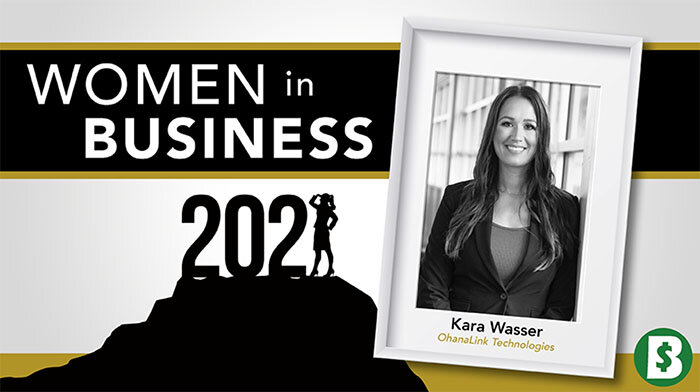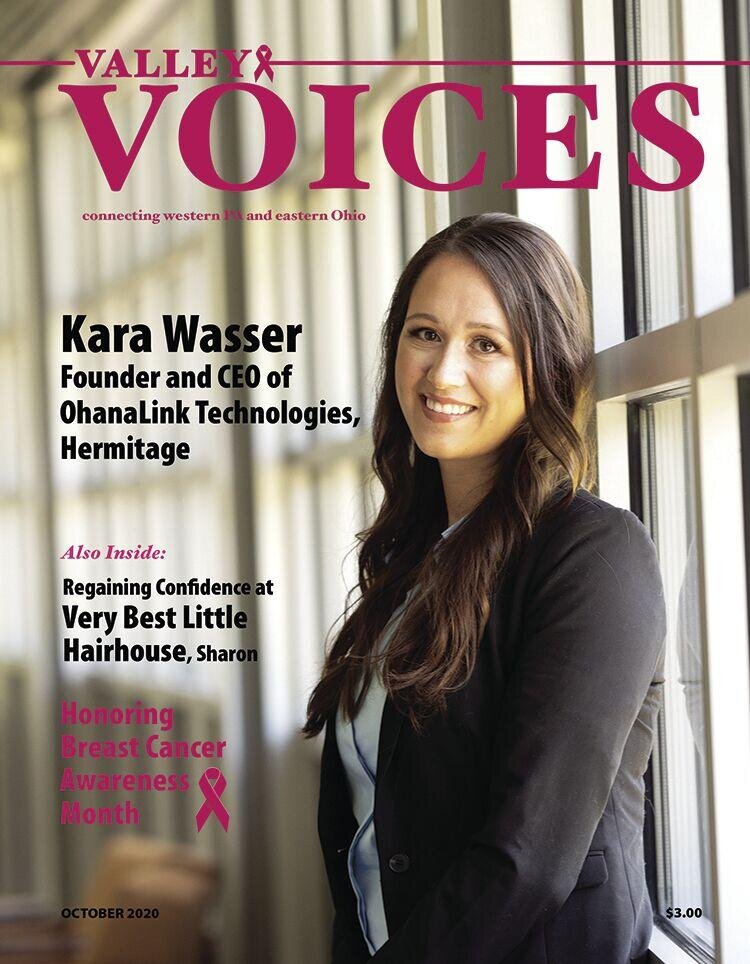Women in Business: Wasser Finds Success in Helping Others
Kara Wasser, CEO and founder of OhanaLink Technologies, launched her business in 2019. Before that, she worked in banking.
OhanaLink, based at the eCenter@LindenPointe, is a platform technology company that develops mobile applications.
As her company has grown, Wasser has pursued larger sums from investors and believes she’s encountered discrimination based on her gender.
“Just getting the attention from investors,” she says. “Really not getting a lot of feedback from investors.”
Some are quick to deny without even learning about the business or the opportunity.
Wasser believes that’s gender related because of what she’s learned about the businesses that do get funding from those investors.
The fact that her business focuses on a women-centered area also likely plays a role.
OhanaLink Purple is an app for domestic violence victims and the organizations that help them.
“I have been actually told that there are men in [groups that provide money to startups] that it would make them uncomfortable to invest in a business that focused on domestic violence,” Wasser says.
To combat that, OhanaLink shifted its focus to target investors with social impact as their aim.
The original OhanaLink app, started in early 2020, connects family members or friends so they may communicate easily and privately during health-related events, such as a birth.
“During that time, we had done some media around the privacy and security features built into our platform. And so our local domestic violence agency came to us and said, ‘We are desperate for a solution. Can you help us?’” she says.
OhanaLink Purple enables providers of domestic violence services to safely and securely connect with victims. The app includes a disguised access point so it cannot be discovered by an abuser who may be monitoring a victim’s device.
With OhanaLink Purple, the fact that Wasser is female may have allowed her an advantage.
“I think it definitely has enabled a quicker trust factor to take place,” she says.
The app is in eight states, with 37 agencies onboarded and hundreds of advocates helping victims.
“I don’t think there’s a shortcut to success,” Wasser says, adding that patience is key.
“Continuing to learn every day was really the challenge in diving into entrepreneurship,” Wasser says. “And really checking your ego at the door and learning from those that have been there and done that.”



